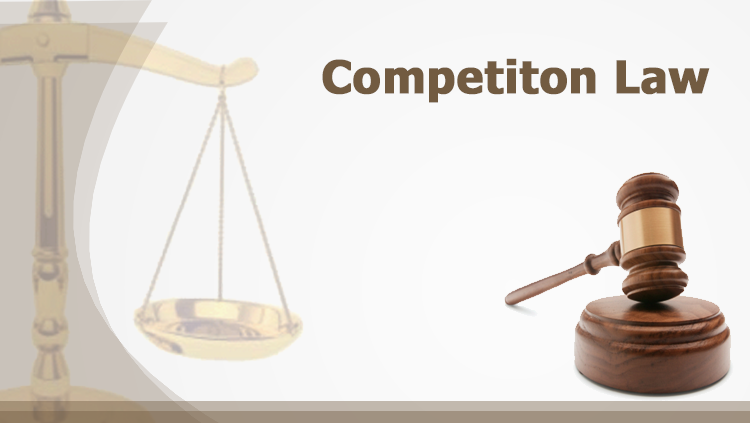+91-11-46628866 | info@compad.in Schedule a Meeting →

Indian Competition Law witnessed a series of important developments during 2018.
In a first, International Competition Network (ICN) was held in New Delhi, hosted by CCI, attended by 132 Competition Authorities from 120 jurisdictions, and 500 participants, think tanks, law firms and economists.
In ICN, CCI’s focus was on ‘Cartel enforcement and Competition’ wherein it produced a comprehensive report, including rampant cartelization in markets, use of tools for effective cartel investigation, and need for focused advocacy in vulnerable areas.
It also produced a ‘Competition Assessment Toolkit’ for a comprehensive assessment of policies, legislations, rules and regulations to detect and curb practices of bid-rigging in Public Procurement.
This year, CCI passed seven orders, granting reduction in penalties up to 100%. These included cartelization in dry cell battery market, tenders of Pune Municipal Corporation for solid waste processing, flashlight market etc.
While dealing with cases, CCI has demonstrated its focus on “actual effect on market” rather than only the “existence of a cartel”. It was interesting to see that it closed a case initiated on leniency applications wherein it found that there was no impact on market.
CCI also dealt with cases like Google, Walmart-Flipkart, Linde-Praxair, Bayer-Monsanto, and many others, and demonstrated its professional and mature approach.
During the year, India recorded a massive jump in global tally of “Ease of Doing Business”. To keep pace and facilitate investments, Ministry of Corporate Affairs (MCA) and CCI took several important measures to amend regulations and make them user-friendly. In M&A transactions, average time for approvals came down from 24 working days in 2017 to 17 working days in 2018. Out of 615 combination cases, approval was accorded in 601 cases. A self-guidance system named “Do it yourself (DIY)”, was introduced for determining notifiability of M&A. In another reform, CCI amended its regulations for the sixth time, permitting withdrawal/re-filing of notices, allowing submission of voluntary modifications, appointing agencies to supervise implementation of modification etc.
In order to scrutinize Competition Law, a High Level Committee was constituted under Secretary MCA for bringing the Law in tune with the needs of changing business environment.
This year also saw several changes in CCI’s constitution, with retirement of earlier incumbents, and induction of new Chairperson and a Member.
Another important area is the competition assessment of legislations. An Inter-Ministerial Committee was formed under the Chairmanship of Secretary, DIPP to review Act, Rules, and Regulations from a competition perspective. This would help infusing competition policies with all its benefits in various activities and delivery of services in government and public sector.
An important development has been Insolvency and Bankruptcy Law. To facilitate better coordination and curtail time in sequencing, CCI’s approval has now been made mandatory for Resolution plans. CCI has dealt with and approved several such combination matters like Bhushan Steel and Tata Steel, Essar Steel and ArcelorMittal, Binani Cement and Dalmia Bharat Cement etc. This would help in speedier resolution of stressed assets and bad debts.
An important sector for common man is Healthcare sector. CCI brought out a Policy Note “Making Markets Work for Affordable Healthcare”. It has been investigating several cases in this sector. Through its interventions in pharma and diagnostics, and investigation of practices in super-specialty hospitals it has sent a loud message to reform anti-competitive practices.
In the e-commerce domain, CCI dealt with complaints relating to predatory pricing (cash burns/deep discounting etc.), preferential treatment to selected sellers and providing a level- playing field. Some of these issues have found place in the new clarifications by DIPP for players in e-commerce.
Under law, Competition Advocacy is equally important as enforcement. Indian Institute of Corporate Affairs (IICA) has been roped in as a major collaborator in this endeavor. A series of roadshows in Mumbai, Delhi and Ahmedabad, have been held and many more are on anvil.
Finally, the year has also seen important evolution of jurisprudence in Competition Law through pronouncements by Supreme Court, NCLAT, and High Courts. These included SC’s judgment in CCI vs. Bharti Airtel where the Court delineated specific roles of TRAI-CCI, analyzing their mandates and clarifying how they should deal with such matter. There have also been pronouncements on imposition of penalties on relevant turnover, and not the whole. Also, Delhi High Court’s judgments in Mahyco Monsanto India) and Cadila case have clarified various procedural ambiguities in inquiry of CCI and power of DG. These all have helped in providing much needed clarity in jurisprudence on several issues.
The year 2019 promises to be very exciting as well, and cover newer frontiers.